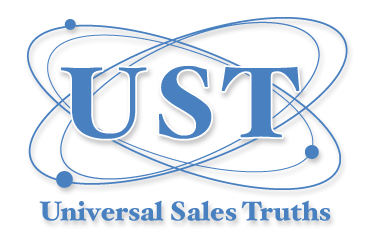Few topics related to professional sales generate a more heated debate than the topic of business entertainment.
One traditional school of thought suggests that entertainment is critical to building long-term relationships that result in consistent revenue and profits. The opposite school of thought argues that today’s decision-makers don’t have the time or inclination to take advantage of entertainment opportunities outside the office. Additionally, they don’t want to feel any sense of obligation to do business with a company that is offering entertainment options.
To be clear, business entertainment does not apply to all sales environments. Lower-revenue, highly transactional, or “one-call” sales contacts are not applicable to this topic.
At UST, we typically focus on B2B sales environments that are mission-critical to a client’s long-term success. The sales cycle can be several months or even several years. The revenue is significantly higher as well as ongoing. Therefore, a successful sales executive should have new-account as well as account-management sales skills.
I worked with a sales exec in New York City back in the late ’70s who brought new meaning to business entertainment. Bill would say he made at least three sales calls a day. Breakfast, lunch and dinner. He said that somewhat in jest, but he definitely tried to arrange as many meetings as he could around eating. If you think about it, we all need to eat. So why not arrange a sales call around it if you can? Bill also used every possible entertainment venue you could imagine to build relationships. Golf, skiing, concerts, baseball and football games, etc. He leveraged the expense account like no other. His customers became very loyal to Bill, and he enjoyed a long and successful sales career.
Few sales professionals would argue that building trust is key to sales success. Before an executive decides to purchase, he needs to trust the sales exec who represents the product. It’s unlikely that a sale will be made if the sales rep is not trustworthy. Over time, the trust that has been built translates into respect. And over time, trust and respect result in long-term loyalty. This, of course, is the goal of most sales execs. Therefore, the question becomes: How do we build trust, respect and loyalty?
As a professional, it is your responsibility to determine on a case-by-case basis what is necessary to build trust. Very rarely does “one size fit all.” I would have to say, in all cases, it begins with being a good listener. It’s difficult to understand how you can assist a client with your product if you do all the talking. In addition, unless your prospect knows you care, it’s very difficult to build initial trust. Trust is not achieved when the sales rep doesn’t stop speaking. Build a connection with your prospect BEFORE you begin selling. It’s important that your prospect knows you care enough to understand his business challenges. It’s difficult to establish initial trust if you immediately launch into your sales presentation as soon as the meeting begins.
Also, any entertainment offers will seem disingenuous if you don’t establish a connection or initial trust. During the interview process for my book, I was shocked by one story in particular that a former customer of mine told me. A competitor insulted my customer by suggesting that he made a horrible purchasing decision on a particular product offering. This was on the first sales call! Then, right before the rep was wrapping up this initial call, he invited my customer to dinner. You can’t make stuff like this up.
Needless to say, offering entertainment should be genuine, but it is certainly not a requirement in every sales campaign. And most prospects or current clients typically will not accept these invitations if they don’t enjoy the company of the sales exec. So make it a point to build a connection and relationship first.
Personally, I very much enjoyed mixing business with pleasure during my selling career. And quite frankly, I still keep in touch with many of my former clients because I truly enjoyed their company.
In fact, if it wasn’t for a customer at T. Rowe Price, I might not be a martini drinker today. He introduced me to the cocktail at an executive briefing dinner at the Capital Grill in Boston back in 1999.
Thank you, Bill.
UNIVERSAL SALES TRUTH # 1
Surround yourself with successful people of integrity
Proverbs 28:26
If you think you know it all, you’re a fool for sure;
real survivors learn wisdom from others.
